
Paul Laurence Dunbar Chambers Jr. was an American jazz double bassist. A fixture of rhythm sections during the 1950s and 1960s, he has become one of the most widely-known jazz bassists of the hard bop era. He was also known for his bowed solos. Chambers recorded about a dozen albums as a leader or co-leader, and over 100 more as a sideman, especially as the anchor of trumpeter Miles Davis's "first great quintet" (1955–63) and with pianist Wynton Kelly (1963–68).
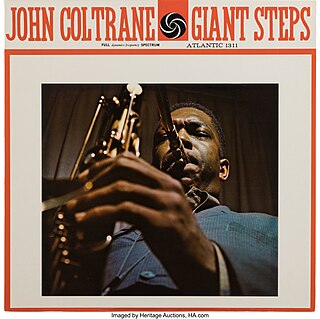
Giant Steps is a studio album by the jazz musician John Coltrane. It was released in February 1960 through Atlantic Records. This was Coltrane's first album as leader for the label, with which he had signed a new contract the previous year. The record is regarded as one of the most influential jazz albums of all time. Many of its tracks have become practice templates for jazz saxophonists. In 2004, it was one of fifty recordings chosen that year by the Library of Congress to be added to the National Recording Registry. It attained gold record status in 2018, having sold 500,000 copies.
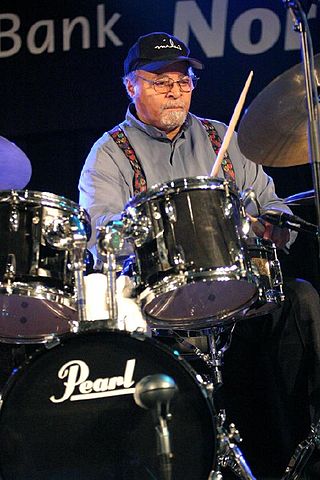
Wilbur James "Jimmy" Cobb was an American jazz drummer. He was part of Miles Davis's First Great Sextet. At the time of his death, he had been the Sextet's last surviving member for nearly thirty years. He was awarded an NEA Jazz Masters Fellowship in 2009.
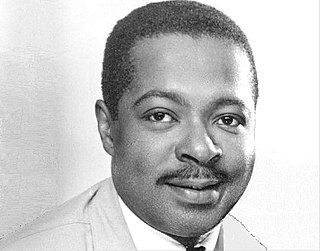
Wynton Charles Kelly was an American jazz pianist and composer. He is known for his lively, blues-based playing and as one of the finest accompanists in jazz. He began playing professionally at the age of 12 and was pianist on a No. 1 R&B hit at the age of 16. His recording debut as a leader occurred three years later, around the time he started to become better known as an accompanist to singer Dinah Washington, and as a member of trumpeter Dizzy Gillespie's band. This progress was interrupted by two years in the United States Army, after which Kelly worked again with Washington and Gillespie, and played with other leaders. Over the next few years, these included instrumentalists Cannonball Adderley, John Coltrane, Hank Mobley, Wes Montgomery, and Sonny Rollins, and vocalists Betty Carter, Billie Holiday, and Abbey Lincoln.

Someday My Prince Will Come is the seventh studio album by Miles Davis for Columbia Records, catalogue CL 1656 and CS 8456 in stereo, released in 1961. Recorded at Columbia's 30th Street Studio in Manhattan, New York City, it marked the only Miles Davis Quintet studio recording session to feature saxophonist Hank Mobley.

Seven Steps to Heaven is a studio album by the jazz musician Miles Davis. It was released through Columbia Records on July 15, 1963. The recording took place at Columbia Studios in Los Angeles in April 1963, and at Columbia's 30th Street Studios in Manhattan in May 1963. It presents the Miles Davis Quintet in transition, with the New York session introducing the rhythm section of Herbie Hancock, Ron Carter and Tony Williams, who would become Davis' regular sidemen for the next five years. Upon release, the album was Davis' most successful on the Billboard pop LPs chart up to that point, peaking at number 62.

Art Pepper Meets the Rhythm Section is a 1957 jazz album by saxophonist Art Pepper with pianist Red Garland, bassist Paul Chambers and drummer Philly Joe Jones, who were the acclaimed rhythm section for Miles Davis at that time. The album is considered a milestone in Pepper's career.
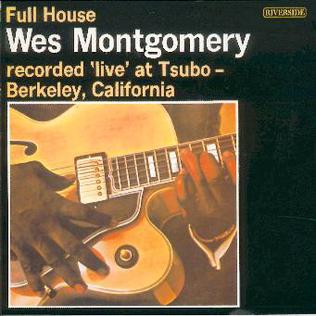
Full House is an album by the jazz guitarist Wes Montgomery, released in 1962.

Soul Station is an album by American jazz saxophonist Hank Mobley recorded on February 7, 1960 and released on Blue Note later that year. Mobley's quartet features rhythm section Wynton Kelly, Paul Chambers and Art Blakey.

Gettin' Together! is an album recorded in 1960 by Paul Gonsalves. AllMusic's Scott Yanow awarded the album 4 1/2 stars. He wrote "The music is straight-ahead and shows that Gonsalves was quite capable of playing with younger "modernists"." The Penguin Guide to Jazz Recordings describes it as “a remarkable album, beautifully played and recorded.”

Coltrane Jazz is a studio album by the jazz musician John Coltrane. It was released in early 1961 on Atlantic Records. Most of the album features Coltrane playing with his former Miles Davis bandmates, pianist Wynton Kelly, bassist Paul Chambers and drummer Jimmy Cobb during two sessions in November and December, 1959. The exception is the track "Village Blues", which was recorded October 21, 1960. "Village Blues" comes from the first recording session featuring Coltrane playing with pianist McCoy Tyner and drummer Elvin Jones, who toured and recorded with Coltrane as part of his celebrated "classic quartet" from 1960 to 1965.

Roll Call is an album by jazz tenor saxophonist Hank Mobley. It features trumpeter Freddie Hubbard, pianist Wynton Kelly, bassist Paul Chambers, and drummer Art Blakey.
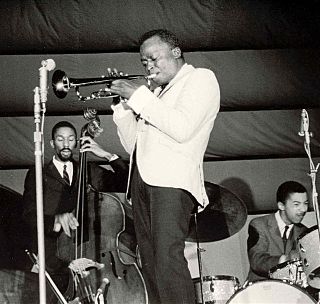
The Miles Davis Quintet was an American jazz band from 1955 to early 1969 led by Miles Davis. The quintet underwent frequent personnel changes toward its metamorphosis into a different ensemble in 1969. Most references pertain to two distinct and relatively stable bands: the First Great Quintet from 1955 to 1958, and the Second Great Quintet from late 1964 to early 1969, Davis being the only constant throughout.

Introducing Wayne Shorter is the debut album by jazz saxophonist Wayne Shorter. It was recorded on November 9 and 10, 1959, at Bell Sound Studios in New York City. It features five Shorter compositions, plus Kurt Weill's "Mack the Knife”, performed by a quintet featuring trumpeter Lee Morgan, pianist Wynton Kelly, bassist Paul Chambers and drummer Jimmy Cobb. Shorter played with Morgan in the front line of Art Blakey's Jazz Messengers at this time while Kelly, Chambers and Cobb were the widely celebrated rhythm section with Miles Davis.

Miles Davis & Gil Evans: The Complete Columbia Studio Recordings is a box set of music by jazz musicians Miles Davis and Gil Evans originally released on CD in 1996 and remastered and re-released in 2004. It collects work from 1957 through 1968 at Columbia Records recording studios.
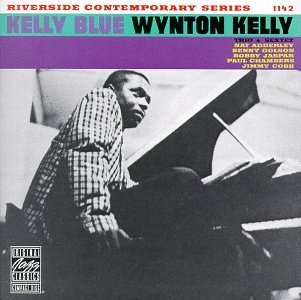
Kelly Blue is an album by American jazz pianist Wynton Kelly, released in 1959.
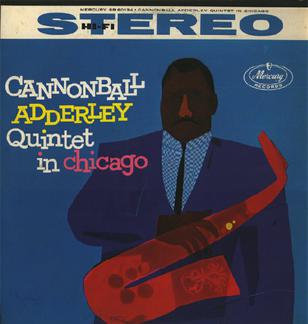
Cannonball Adderley Quintet in Chicago is an album by jazz saxophonist Cannonball Adderley, his final release on the Mercury label, featuring performances by Adderley with John Coltrane, Wynton Kelly, Paul Chambers and Jimmy Cobb.
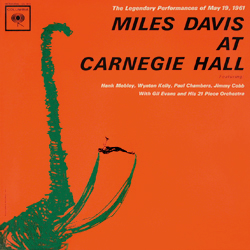
Miles Davis at Carnegie Hall: The Legendary Performances of May 19, 1961 is a live album by American jazz musician Miles Davis originally released by Columbia in 1962.
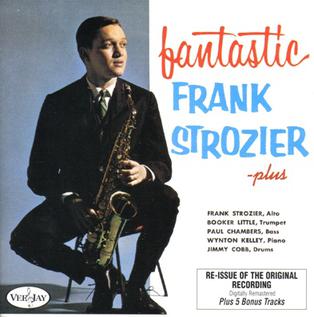
Fantastic Frank Strozier is the debut album by American saxophonist Frank Strozier, recorded in 1959 and 1960 for Vee-Jay Records. The personnel includes the rhythm section from part of Miles Davis's Kind of Blue, recorded earlier in 1959.

Go is an album by jazz bassist Paul Chambers recorded in Chicago in 1959 and released by the Vee-Jay label. Featured musicians include trumpeter Freddie Hubbard, alto saxophonist Cannonball Adderley, pianist Wynton Kelly and drummer Philly Joe Jones. The album was re-released in 1997 as a double CD featuring additional recordings and alternate takes from the sessions and included as part of the Mosaic Box Set The Complete Vee Jay Paul Chambers/Wynton Kelly Sessions 1959-61 in 2000.




















